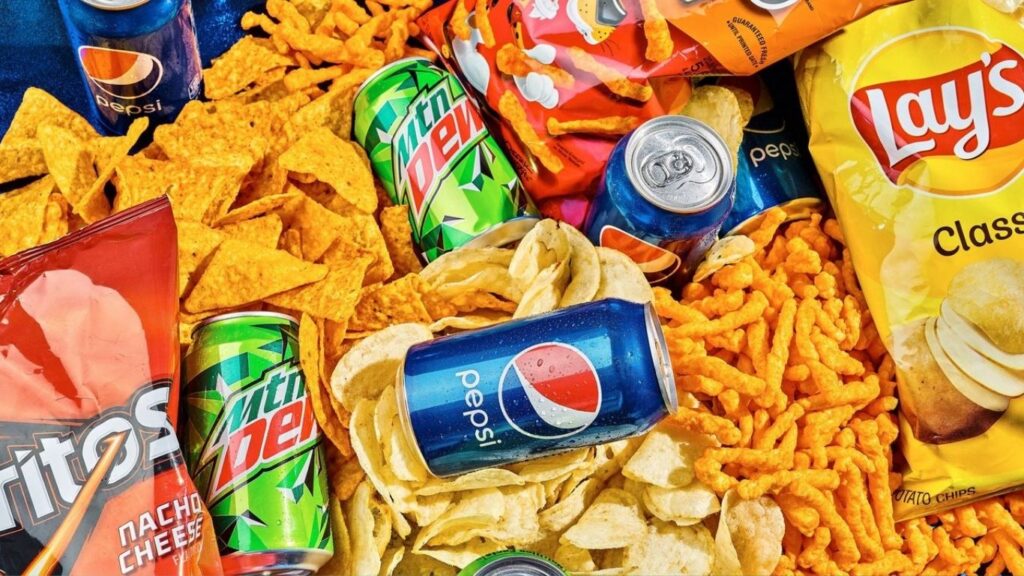In today’s fast-paced world, convenience often trumps health when it comes to food choices. Processed foods, once considered a luxury, have become a staple in many people’s diets. From canned soups and microwave dinners to sugary cereals and snacks, these processed options dominate our supermarket shelves. While they may be convenient, the consumption of processed foods comes with a host of dangers that can significantly impact your health. In this in-depth exploration, we will uncover the hidden perils of processed foods and explain why you should make a conscious effort to avoid them.
The Rise of Processed Foods
Processed foods have surged in popularity over the past century, driven by changes in lifestyle, technology, and marketing. The convenience of ready-made meals and snacks, coupled with aggressive advertising and attractive packaging, has made these products hard to resist. The result is that many individuals, especially in Western societies, have incorporated a significant portion of processed foods into their daily diets.
But what exactly are processed foods? Processed foods refer to any food item that has undergone deliberate changes to its natural state before reaching your plate. This can involve adding preservatives, flavor enhancers, artificial colors, and other chemicals. It also includes foods that have been mechanically altered, like frozen vegetables or pre-cut fruit. While not all processing is bad, it’s the extent and nature of the changes that matter.
The Hidden Dangers of Processed Foods
Excessive Sugar
One of the most concerning aspects of processed foods is their high sugar content. Sugar is often added to enhance flavor, increase shelf life, and make processed foods more palatable. Excessive sugar consumption has been linked to a myriad of health problems, including obesity, type 2 diabetes, heart disease, and tooth decay.
When you consume processed foods, you might not be aware of just how much sugar you’re ingesting. It’s not limited to obvious sources like soda and candy; it’s also found in seemingly harmless products like yogurt, ketchup, and salad dressings. These added sugars can quickly add up, leading to overconsumption and its associated health risks.
Unhealthy Fats
Processed foods are typically loaded with unhealthy fats, including trans fats and saturated fats. These fats are often used to improve the texture and flavor of the product and extend its shelf life. However, they can wreak havoc on your health.
Trans fats, in particular, have been strongly linked to an increased risk of heart disease. They raise levels of bad cholesterol (LDL) and lower good cholesterol (HDL), making them a double threat to cardiovascular health. Many processed foods, such as packaged snacks and fried foods, contain trans fats, making them a dangerous dietary choice.

High Sodium Levels
Another prevalent issue with processed foods is their high sodium content. Salt is used in these products as a preservative and a flavor enhancer. While salt is an essential nutrient in moderation, excessive sodium intake can lead to high blood pressure and an increased risk of stroke, heart disease, and kidney problems.
Consuming processed foods regularly can contribute significantly to your daily sodium intake, pushing it far beyond recommended limits. Even seemingly healthy options like canned soups and frozen meals can contain shockingly high levels of sodium.
Artificial Additives
Processed foods often contain a cocktail of artificial additives, including colors, flavors, and preservatives. These substances are added to enhance the appearance, taste, and shelf life of the products. While the long-term health effects of many of these additives are still not fully understood, some have raised concerns.
For example, certain food colorings have been associated with hyperactivity in children. Additionally, some preservatives and flavor enhancers have been linked to allergies and adverse reactions in sensitive individuals. The more processed foods you consume, the greater your exposure to these potentially harmful substances.
Lack of Nutrients
While processed foods are designed for convenience, they often lack essential nutrients. During processing, many natural nutrients are stripped away, leaving behind a product that may be calorie-dense but nutritionally poor. This can lead to a diet that is deficient in vitamins, minerals, fiber, and other important compounds.
A diet dominated by processed foods can contribute to various health issues, including nutrient deficiencies, weight gain, and a higher risk of chronic diseases. It’s essential to prioritize whole, unprocessed foods to ensure you’re getting the nutrients your body needs for optimal health.
Disrupted Appetite Regulation
Processed foods are often engineered to be hyper-palatable, which means they are intentionally designed to be irresistibly tasty. The combination of sugar, unhealthy fats, and artificial flavors can disrupt your body’s natural appetite regulation mechanisms.
When you consume processed foods, you’re more likely to overeat due to their high reward value. This can lead to weight gain and contribute to the ongoing obesity epidemic in many countries. Whole, unprocessed foods tend to provide better satiety and help regulate appetite more effectively.
Increased Risk of Chronic Diseases
The cumulative impact of consuming processed foods over time can significantly increase your risk of chronic diseases. Conditions like obesity, type 2 diabetes, heart disease, and certain cancers have all been linked to diets high in processed foods.
Moreover, processed foods often displace healthier options in your diet. When you choose processed snacks over fruits and vegetables or fast food over home-cooked meals, you miss out on the vital nutrients and antioxidants that protect your health and lower disease risk.

Making the Switch to Whole Foods
Avoiding processed foods can be challenging in today’s world, but it’s a crucial step toward better health. Here are some strategies to help you transition to a diet based on whole, unprocessed foods:
Read Labels:
Become a label detective. Pay attention to the ingredient list, and avoid products with a long list of additives, artificial colors, and high levels of sugar, sodium, or unhealthy fats.
Cook at Home:
Preparing meals at home gives you more control over the ingredients you use. It allows you to choose whole, unprocessed foods and create balanced, nutritious meals.
Plan Your Meals:
Planning your meals in advance can help you resist the temptation of processed foods when you’re hungry and pressed for time. Have healthy snacks and ingredients readily available.
Choose Whole Grains:
Choose whole grains like brown rice, quinoa, and whole wheat pasta instead of refined grains like white rice and white bread.
Shop the Perimeter:
In most grocery stores, fresh produce, lean proteins, and dairy products are located around the perimeter of the store. Focus your shopping on these areas.
Limit Eating Out:
While it’s okay to enjoy restaurant meals occasionally, dining out often means consuming more processed foods. Save eating out for special occasions and prioritize home-cooked meals.
Educate Yourself:
Stay informed about nutrition and the health risks associated with processed foods. Knowledge is a powerful motivator for making healthier choices.

Conclusion
The dangers of processed foods are real, and their impact on our health cannot be underestimated. From excessive sugar and unhealthy fats to artificial additives and nutrient deficiencies, these foods can lead to a wide range of health problems, from obesity to heart disease. If you want to safeguard your well-being and that of your loved ones, it’s essential to minimize the consumption of processed foods and prioritize a diet based on whole, unprocessed options. By making this change, you’ll be taking a significant step toward a healthier and happier life.
Also read: Nutrition Education in Schools: How Teachers Can Influence Healthy Eating Habitshttps://fitgurulife.com/2023/10/29/nutrition-education-in-schools-how-teachers-can-influence-healthy-eating-habits/
